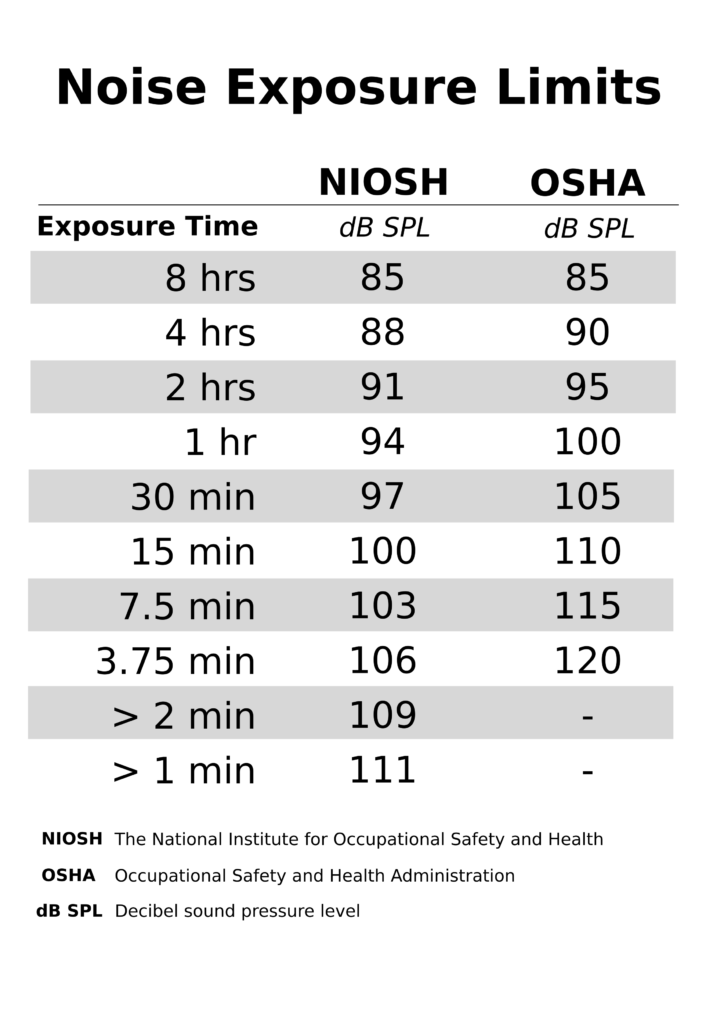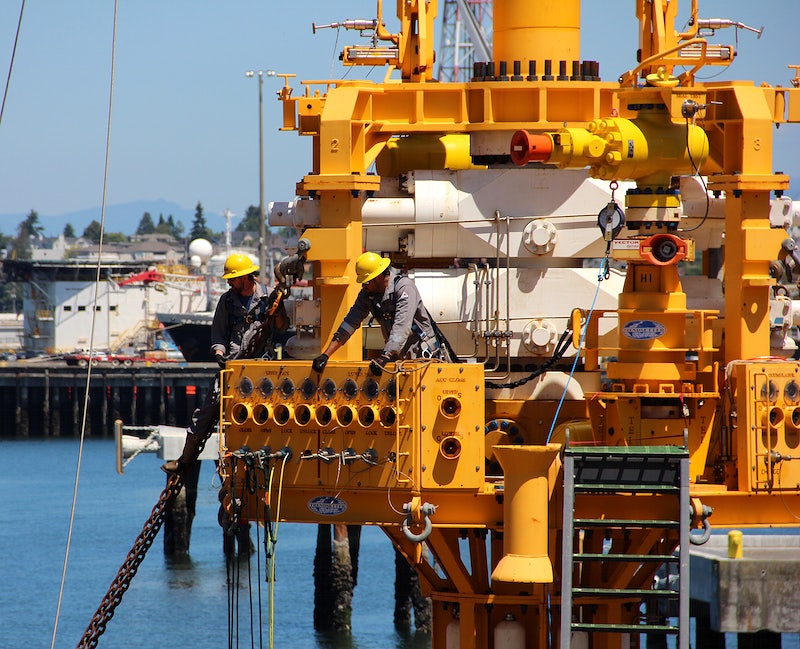
Definition of an Assistant Driller
An assistant driller plays a crucial role in drilling operations, assisting the driller in the daily operations and maintenance of drilling equipment on any type of drilling rig. This position requires high physical stamina, technical expertise, and the ability to work in a fast-paced and often hazardous environment. The job description of assistant drillers leads them to work closely with the drilling crew, ensuring the safe operation of the drilling rig (and adherence to safety procedures. But first, we recommend reading more about life on an oil rig.
They assist in the drilling process, including controlling drilling patterns, preparing and managing drilling fluid types, and collecting high-quality drilling core samples. Assistant drillers also support routine maintenance, ensuring that rig equipment always functions correctly. With their attention to detail and technical calculations, assistant drillers play a vital role in ensuring the successful completion of drilling projects.
Role and Responsibilities of an Assistant Driller
The role of an Assistant Driller in the drilling industry is crucial in ensuring the efficient and safe operation of drilling equipment. They work closely with the driller and other drill crew members to assist in the daily drilling operations.
One of the primary responsibilities of an Assistant Driller is to assist with the set-up and maintenance of drilling equipment. This includes conducting routine maintenance, such as greasing and cleaning equipment, and ensuring all tools and equipment work properly. They also assist in the assembly and disassembly of drilling rig components.
The Assistant Driller is vital to the drill crew during drilling operations. They assist in operating the drilling rig, which includes handling drilling tools, tripping pipe, and monitoring drilling parameters. They also help mud engineers in the control of drilling fluid circulation and the collection of high-quality drilling core samples.
In addition, the Assistant Driller seeks guidance and direction from the driller, drilling engineer, directional driller, or other senior crew members as necessary. They are responsible for following safety procedures and maintaining a clean and safe work environment at the rig site. The Assistant Driller also ensures that accurate records, such as the daily drilling report, are maintained.
Overall, an Assistant Driller in the drilling industry plays a vital role in supporting drilling operations and ensuring the safe and efficient functioning of the drilling equipment. They make efficient use of their time at the rig site and seek guidance when needed to contribute to the success of drilling well projects.
Qualifications for Assistant Drillers Job Description
Becoming an Assistant Driller in the drilling industry requires education, training, and certifications. While the specific qualifications may vary depending on the employer, several essential requirements must be considered.

One of the basic qualifications for this role is a high school diploma or GED certificate. This demonstrates a level of education and academic proficiency necessary for the job. Additionally, on-the-job training is usually provided to familiarize individuals with drilling operations’ specific processes and procedures.
Optional certifications can be obtained to increase earning capacity and industry advancement. For example, obtaining a certification as a certified assistant driller can validate the skills and knowledge necessary for the role. This certification demonstrates expertise in drilling techniques, safety procedures, and equipment maintenance.
Completing college coursework in geology or engineering can also benefit aspiring Assistant Drillers. This additional education provides a deeper understanding of the geological and engineering principles that underpin drilling operations.
Some employers may also require additional licenses or certifications. For example, a valid driver’s license and clean driving record may be necessary for operating company vehicles. Other certifications related to safety procedures or specific drilling equipment may also be required.
The relevant qualifications and certifications are vital for becoming an Assistant Driller in the drilling industry. These qualifications ensure a strong foundation of knowledge and skills, enhance earning potential and open up opportunities for career advancement.
Working Environment Description For Assistant Drillers Job
The working environment of an Assistant Driller can vary greatly depending on the location and nature of the drilling operation. Assistant Drillers may work on land or offshore in various weather conditions and terrains. They can be exposed to noise, vibrations, dust, and potentially hazardous materials. The job’s physical demands can be strenuous, requiring extended periods of standing, lifting heavy equipment, and working in confined spaces. Assistant Drillers often work as part of a team, collaborating with other drilling crew members and following strict safety protocols.
Working Conditions and Hours
To fulfill his job description, working as assistant drillers can involve long hours, challenging conditions, and physically demanding work. The hours of an assistant driller can vary extensively depending on the project and drilling operations. They may work on a traditional 8-hour shift, five days a week schedule, or they may work on a rotational roster system, which can include extended hours or more prolonged periods away from home.
Assistant drillers work in various environments, including outdoor sites, underground mines, or remote locations. This can expose them to extreme weather conditions and physically challenging terrain. Assistant drillers must comply with safety procedures and wear the appropriate protective equipment to mitigate the risks associated with drilling operations.
Due to the nature of the work, assistant drillers must have the physical stamina and strength to handle power tools, lift heavy equipment, and withstand the demanding physical requirements of the job. Moreover, they must work effectively as part of a drill crew, following drill patterns and maintaining equipment.
Despite the challenging working conditions, assistant drillers often find fulfillment in the dynamic and pioneering spirit of the drilling industry. With competitive salaries and the opportunity for advancement, working as an assistant driller can provide a rewarding career for those with the right level of education, technical calculation skills, and dedication to ensuring the safe operation of drilling rigs.
Safety Procedures and Protective Equipment
Assistant drillers must adhere to strict safety procedures to ensure their safety, as well as the safety of those around them during drilling operations. These procedures are in place to mitigate the risks associated with the job, and assistant drillers should be well-versed in them.
Some safety procedures that assistant drillers typically follow include conducting thorough risk assessments before starting drilling activities and wearing personal protective equipment (PPE) such as hard hats, safety goggles, gloves, and steel-toed boots to protect themselves from potential hazards. They must also follow protocols for using power tools and machinery, handling hazardous substances, and responding to emergencies.
By following these procedures, assistant drillers help ensure the drilling operations’ safety. PPE, for example, helps to protect against injuries from falling objects, flying debris, and exposure to harmful substances. Adherence to safety protocols minimizes the risks of accidents, injuries, and potential damage to equipment.
Additionally, routine maintenance of drilling equipment is crucial for assistant drillers. Regular maintenance helps to identify and address any potential issues before they become significant problems, minimizing downtime and enhancing the safety and efficiency of drilling operations.
Hazards Associated with Gas Industry Work Environment
Assistant drillers in the gas industry work environment face several potential hazards they must be aware of. These hazards include exposure to noise, fumes, and dangerous equipment.
One of the main hazards of working in the gas industry is noise exposure. Assistant drillers are often exposed to high noise levels from drilling equipment, which can lead to hearing damage if proper hearing protection is not used.

In addition to noise exposure, assistant drillers may also face dangers associated with their equipment. The drilling process involves the use of heavy machinery and power tools, which can pose a risk of injury if not used correctly. Assistant drillers must be trained in the safe operation of drilling rigs and follow strict safety protocols to minimize the risk of accidents.
The gas industry work environment also exposes assistant drillers to fumes and other hazardous substances. Assistant drillers may come into contact with toxic gases and chemicals, which can have harmful health effects if proper precautions are not taken.
Furthermore, assistant drillers must be aware of the job’s physical demands. They often work in all weather conditions and may be required to perform physically demanding tasks such as heavy lifting and working in confined spaces.
To ensure their safety, assistant drillers should be trained to properly use personal protective equipment (PPE) and follow all safety procedures. By being aware of these hazards and taking necessary precautions, assistant drillers can minimize the risks associated with working in the gas industry work environment.
Dependence on Routine Maintenance and Valid driver’s License

Routine maintenance is critical to the Assistant Driller’s role in the drilling industry. By performing regular maintenance on drilling equipment, assistant drillers ensure optimal functionality and safety. This preventive approach minimizes the risk of unexpected breakdowns or malfunctions during drilling operations, allowing for smooth and efficient processes.
Assistant drillers are responsible for routine maintenance tasks such as inspecting, lubricating, and repairing equipment components. This includes checking for any signs of wear and tear, replacing damaged parts, and ensuring proper alignment. By consistently maintaining equipment, assistant drillers contribute to the longevity and reliability of drilling rigs, enhancing overall operational efficiency on-site.
In addition, a valid driver’s license with a current driver’s abstract is often a requirement for assistant drillers. This is because they may need to operate company vehicles to transport equipment and personnel to various job sites. A driver’s license ensures that assistant drillers possess the necessary skill set to safely navigate roads, follow traffic rules, and operate vehicles in adherence to company policies and local regulations.
Background information emphasizing the importance of routine maintenance on equipment and the necessity of a valid driver’s license with a current driver’s abstract highlights the commitment to safety, efficiency, and professionalism expected from assistant drillers in the drilling industry.
Daily Operations Description of Assistant Drillers Job
Assistant drillers on a rig perform a range of daily operations to ensure smooth and efficient drilling processes. They are responsible for operating drilling equipment and machinery under the supervision of the driller. This includes setting up and assembling drilling equipment, operating power tools, and handling drilling fluids.
Assistant drillers play a crucial role in maintaining a safe working environment. They follow safety procedures and protocols to prevent accidents and protect the crew and equipment. They also assist in routine maintenance and inspections of drilling equipment to ensure proper functioning and minimize downtime.
In addition, assistant drillers contribute to the drilling process by implementing drill patterns and monitoring drilling parameters. They work closely with the driller and rig floor team to coordinate drilling activities and maintain a clean and safe rig floor.
Assistant drillers also play a role in maintaining accurate records. They are responsible for keeping a daily drilling report, including information such as drilling progress, equipment, drilling fluids, and any issues or incidents during the shift.
Overall, assistant drillers play a vital role in the daily operations of a rig by assisting in the operation of drilling equipment, ensuring safety procedures are followed, maintaining drilling fluids, and keeping detailed records of the drilling process.
Career Paths for Assistant Drillers Job Description

The drilling industry offers various career paths and growth opportunities for assistant drillers. As they gain experience and develop their skills, assistant drillers can progress to higher positions within the drilling crew. With a solid foundation in drilling operations and routine maintenance, assistant drillers can continue their career trajectory by becoming drillers, toolpushers & rig superintend. These roles involve taking on more responsibilities, such as supervising the rig operations.
Assistant drillers can also specialize in specific drilling areas, such as geotechnical or gas, and become experts in their chosen fields. Additionally, assistant drillers can pursue further education or certifications to enhance their knowledge and advance into managerial or technical positions within the drilling industry. With a commitment to continuous learning and professional development, assistant drillers can forge a successful career in the drilling industry.
United States Regulations on Assistant Drillers Job Description

In the United States, regulations surrounding the role of Assistant Drillers in the drilling industry aim to ensure safe and efficient drilling operations. United States regulations require Assistant Drillers to have a valid driver’s license and a clean driving record, as they may be required to operate company vehicles. Depending on the state and company policies, additional licenses, certifications, and training may be necessary to work as an Assistant Driller. These regulations emphasize the importance of proper training and qualifications for individuals working in the drilling industry, highlighting the need for professionalism and adherence to safety protocols.
Federal Regulations
Assistant drillers must adhere to various federal regulations to ensure compliance and the safe operation of drilling rigs. These regulations impact their role and responsibilities in several ways.
One crucial regulation that assistant drillers must be aware of is the Occupational Safety and Health Administration (OSHA) regulations. OSHA sets forth guidelines and standards for safe work practices, equipment operation, and protective equipment usage. Assistant drillers must follow these regulations to ensure the well-being of themselves and their crew members.
Additionally, assistant drillers must adhere to environmental regulations established by federal agencies such as the Environmental Protection Agency (EPA). This includes proper disposal of drilling waste, prevention of pollution, and adherence to guidelines for drilling in environmentally sensitive areas.
Furthermore, federal regulations also address equal opportunity employment and non-discrimination issues. Assistant drillers must follow guidelines set forth by the U.S. Equal Employment Opportunity Commission (EEOC) to ensure fair treatment of all employees regardless of race, gender, age, or national origin.
Overall, assistant drillers must be familiar with and comply with federal regulations related to safety, environmental protection, and fair employment practices. Their understanding and adherence to these regulations are crucial in maintaining the integrity and compliance of drilling operations.
State Regulations
Assistant drillers must adhere to state regulations that govern drilling operations to ensure safety and compliance. These regulations vary by state but often include guidelines for drilling on public lands, water management, and well construction.
In addition to state regulations, assistant drillers must obtain certifications and licenses to demonstrate their competency and understanding of safety procedures. One necessary certification is the Well Control Certification by the Well Control School (WCS). This certification ensures that assistant drillers have the knowledge and skills to control wellbore pressures during drilling operations, minimizing the risk of blowouts and other dangerous situations.
Another essential requirement is the Transportation Worker Identification Credential (TWIC) card. The Transportation Security Administration issues this card, and it is necessary for individuals who work in the maritime industry or require access to secure areas of ports and vessels. Assistant drillers often need to board offshore drilling rigs or vessels, making the TWIC card a vital credential.
By adhering to state regulations and obtaining the necessary certifications and licenses, such as WCS Surface & Subsea Well Control and TWIC Card, assistant drillers contribute to the overall safety and compliance in the drilling industry. This ensures the protection of personnel, the environment, and the integrity of drilling operations.
Local Regulations
Assistant Drillers are subject to local regulations that vary depending on the location in which they work. These regulations are in addition to state or municipal regulations that may apply to their role.
The specific regulations that Assistant Drillers must adhere to can vary greatly, as individual states or municipalities often determine them. These regulations may cover many areas, including safety procedures, licensing requirements, and environmental considerations. For example, some states may require Assistant Drillers to obtain a specific certification or license to demonstrate their competency and understanding of drilling operations. Other regulations may focus on using protective equipment, maintaining and operating drilling equipment, or disposing of drilling fluids and waste.
These local regulations significantly impact Assistant Drillers’ daily operations and working conditions. They ensure that drilling operations are carried out safely and environmentally responsible. Assistant Drillers must stay current with these regulations and always comply with them to avoid penalties or violations.
Overall, local regulations play a crucial role in ensuring the safety and compliance of Assistant Drillers in their daily work. By adhering to these regulations, Assistant Drillers can contribute to the successful and responsible operation of drilling projects.